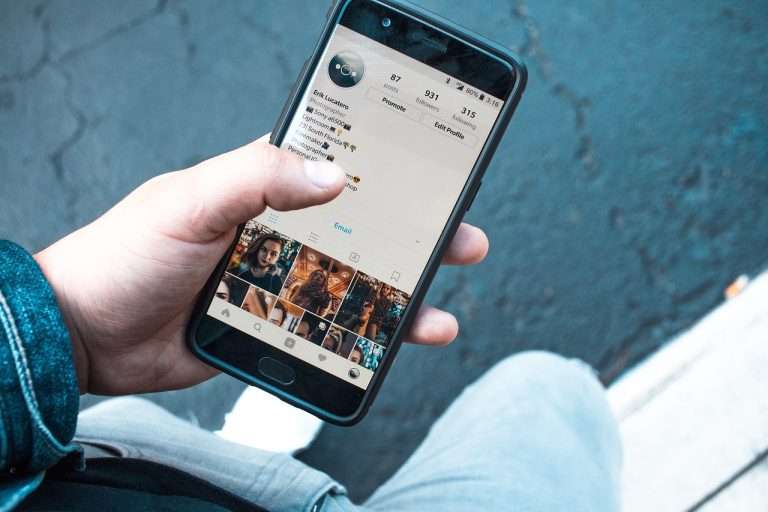Good intentions don’t guarantee good outcomes.
Social media has enabled us to connect and engage like never before, linking one corner of the world to another in the blink of an eye. It has undoubtedly provided new opportunities for millions of people, many of whom have found their voices or even made a living through these platforms. Social media is a cornerstone of 21st-century society and economy.
As generations progress, technology becomes integrated into our lives at an increasingly young age. My older sister got her first smartphone at 15. I got mine at 12, entering middle school. But my little cousins and nephews? They had iPads by the age of 4. Access to social media is also creeping further down the age spectrum, with kids as young as 10 holding Facebook, Instagram, and TikTok accounts—some even younger.
But how much social media is too much? Who gets to decide this—and for minors, in particular? Where do we draw the line between protection and overreach?
Under the leadership of Prime Minister Anthony Albanese, Australia decided to take action. On November 28, they passed a law banning kids under 16 from having social media accounts. While the intentions may seem noble, the government is yet to experience the unintended—and often perverse—outcomes of such interventions. Spoiler alert: it rarely ends well.
Prohibiting what would otherwise be harmless human choices does not guarantee that those choices will disappear. Instead, they go underground—out of sight and away from any supervision. This is when those choices have the potential to become truly harmful, often incentivizing crime.
Australia has long been recognized as part of the “free countries” cohort, consistently ranking high in prosperity and liberty indexes. However, it has recently veered down a different path concerning free speech and social media regulations. In 2021, for example, the Australian Communications and Media Authority (ACMA) introduced reports and initiatives evaluating the “adequacy of digital platforms’ disinformation and news quality measures.” This led to the government granting ACMA greater access to data and information.
While ACMA’s role includes addressing online safety issues like gambling and scams, it has now opened the door to regulating what it considers “hate speech” or “misinformation”—an abstract and dangerous authority for any government to have.
It’s no surprise that Australia has been plummeting in RSF’s (Reporters Sans Frontiers, or “Reporters Without Borders”) World Press Freedom Index, dropping from 19th place in 2018 to currently 39th out of 180 countries and territories—a staggering fall of 20 places in less than a decade!
The intention behind banning social media for minors under 16 is understandable. Many parents and politicians want to protect children from predators and harmful content. But banning access doesn’t mean that millions of Australian minors will simply stop using social media. Instead, they’ll create fake profiles and use VPNs to bypass restrictions. This means they’ll not only be evading government detection but, most critically, parental supervision.
For example, France introduced similar legislation in 2023, blocking social media access for children under 15 without parental consent. Researchers found that nearly half of young users circumvented the restrictions using VPNs. The outcome? Unsuspecting minors, unprotected and unsupervised, became prime targets for predators, scammers, and even human traffickers.
Good intentions don’t guarantee good outcomes—especially when governments assume they can manage personal choices better than individuals. Prime Minister Albanese justified the ban, stating, “We want our kids to have a childhood and parents to know we have their backs.” While some parents may support government intervention, many others prefer to handle these matters privately, within their families. Is it fair to impose the potentially harmful consequences of this prohibition on families who never wanted state interference in the first place? Absolutely not.
The Albanese government’s stance is reminiscent of Friedrich Hayek’s warning in The Fatal Conceit: certain groups or individuals—often the state—believe they know what’s best for everyone. This hubris leads them to impose their way of life on others, disregarding individual preferences and freedoms. Australia’s social media ban is a textbook example of this mindset. And yet, the unintended consequences of such prohibitions will be borne by those who opposed them from the start. Not to mention the damaging effects towards free speech, a free press, and free choice—pillars that are essential for any society’s short- and long-term prosperity.
Social media will remain an essential part of modern life, likely for the rest of our time. As with every aspect of our lives, there is an inherent element of risk, but this is not a justification for any government to intervene to the extent that it undermines harmless personal choices and freedom of speech. When it comes to minors, these decisions should rest within the family, where parents can guide and supervise their children according to their own values and circumstances. As John Stuart Mill argued, the government’s role should only come into play when individual rights are being directly violated.
Additional Reading:
Why the Government Shouldn’t Regulate Youth Access to Social Media by Kimberlee Josephson
Why Youth Social Media Bans Are a Bad Idea by Kerry McDonald





